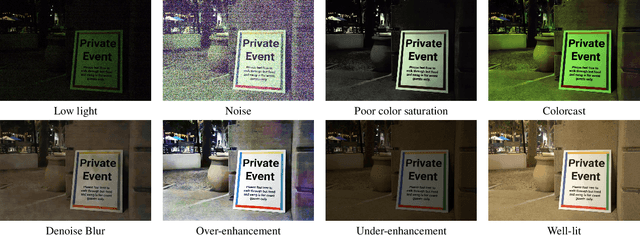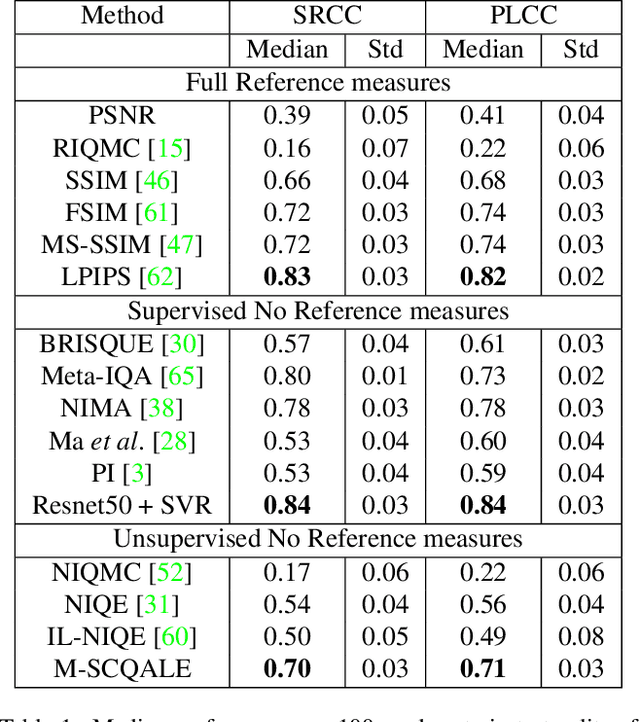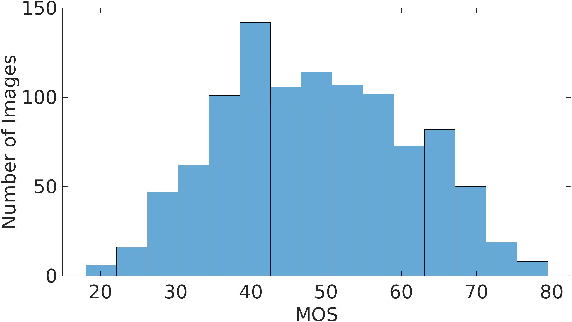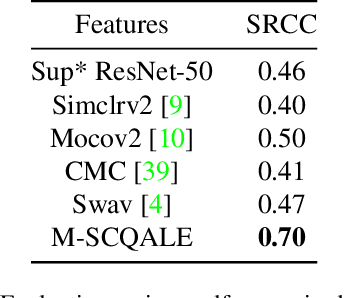Quality Assessment of Low Light Restored Images: A Subjective Study and an Unsupervised Model
Paper and Code
Feb 04, 2022



The quality assessment (QA) of restored low light images is an important tool for benchmarking and improving low light restoration (LLR) algorithms. While several LLR algorithms exist, the subjective perception of the restored images has been much less studied. Challenges in capturing aligned low light and well-lit image pairs and collecting a large number of human opinion scores of quality for training, warrant the design of unsupervised (or opinion unaware) no-reference (NR) QA methods. This work studies the subjective perception of low light restored images and their unsupervised NR QA. Our contributions are two-fold. We first create a dataset of restored low light images using various LLR methods, conduct a subjective QA study and benchmark the performance of existing QA methods. We then present a self-supervised contrastive learning technique to extract distortion aware features from the restored low light images. We show that these features can be effectively used to build an opinion unaware image quality analyzer. Detailed experiments reveal that our unsupervised NR QA model achieves state-of-the-art performance among all such quality measures for low light restored images.
 Add to Chrome
Add to Chrome Add to Firefox
Add to Firefox Add to Edge
Add to Edge